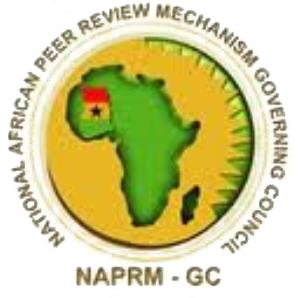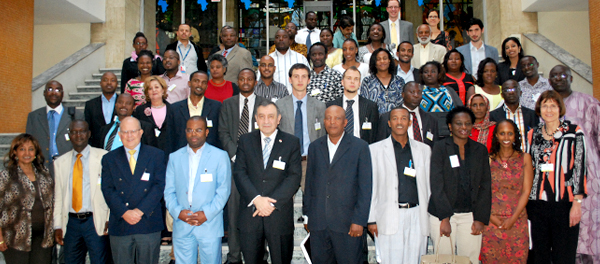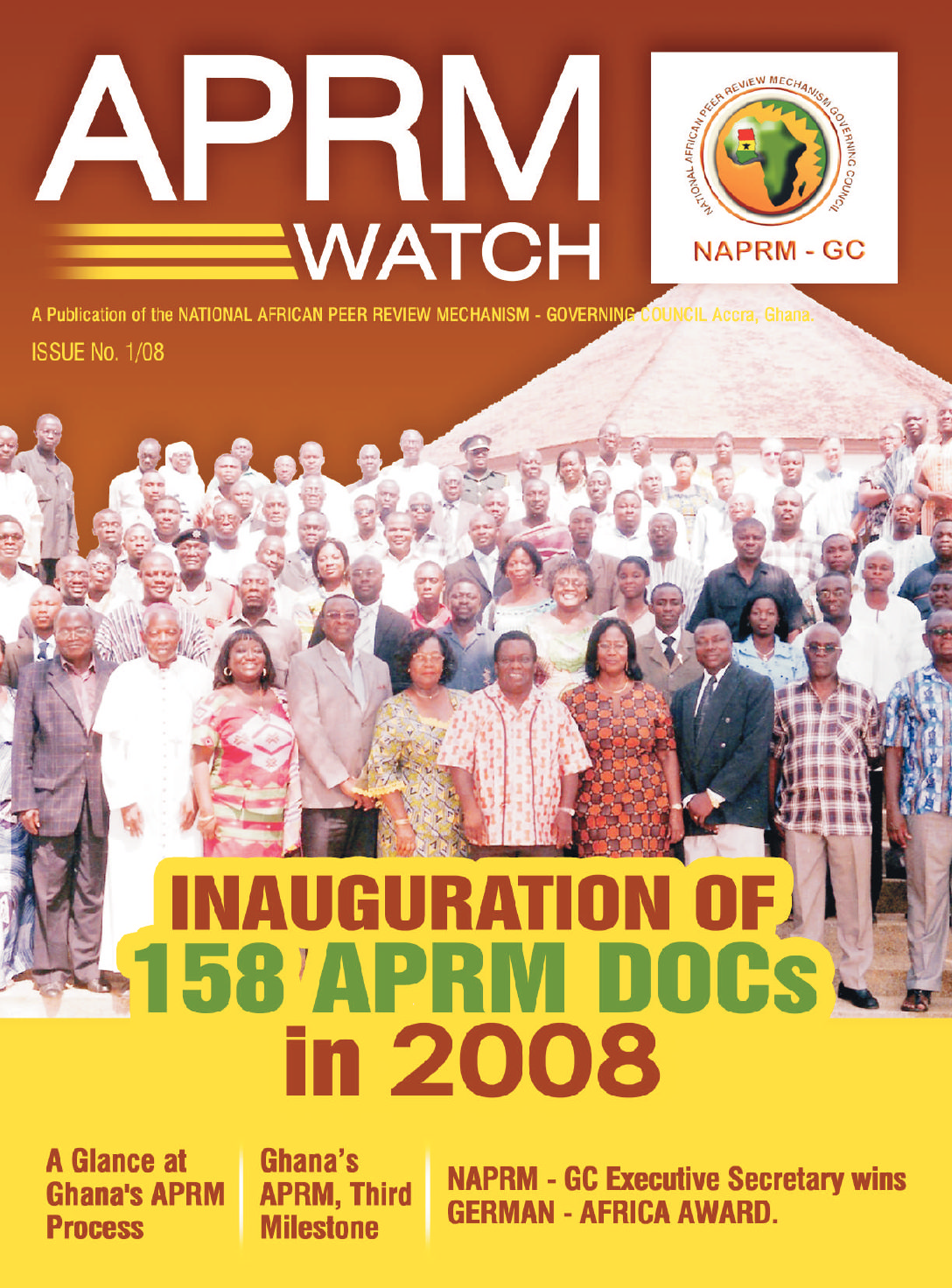A 4-member team from the APRM secretariat in Burkina Faso called on the Executive Secretary of the National African PEER Review Mechanism Governing Council, Dr. Francis Appiah on June 12,2008.
The Burkina team, led by Natama Jean-Baptiste, the Permanent Secretary of the APRM Commission said it was in the country to tap on Ghana’s wealth of knowledge and experience on the African Peer Review Mechanism Process as the country prepares for a Peer review.
He said APRM Commission is conscious of the challenges involved in the implementation of the APRM Programme of Action and is eager to arm itself with relevant information and ensure a speedy process. He commended Ghana for her pioneering roles in Pan-Africanism and in the APRM.
Dr. Francis Appiah congratulated Burkina Faso and the Commission in getting the Country Report ready for the review. He shared Ghana’s experience on procedure, processes, reporting, and sensitization, implementation of the Programme of Action and Monitoring and Evaluation. He stated that after review, it is very important for the report to be published with popular versions and translated into major local languages. He referred to two critical areas after the country review; how to get the government to implement the programme of action and how to make the people participate and own the APRM process.
Dr. Appiah said that government cannot implement all the programes at a go hence they are scheduled on short, medium and long terms basis.
He said as an African programme, autonomous of governments, it is important to demonstrate independence and ownership and not rely solely on external sources although such assistance may be welcome. What is best is to get APRM activities worked into the national budget and keep track of activities.
He said continuous education and the involvement of traditional leaders, women’s groups, academia, civil society and the business community, among others ensures the successful implementation of process..
Dr. Appiah concluded that the independence of the National Governing Council has been critical in Ghana’s Process. The introduction of the concept of District Oversight Committees, where members are nominated by the people themselves ensures the acceptance of the process.
We have also shared our experience with Burkina Faso, Nigeria and Uganda who are due for review this month.


 newsletter-compressed
newsletter-compressed